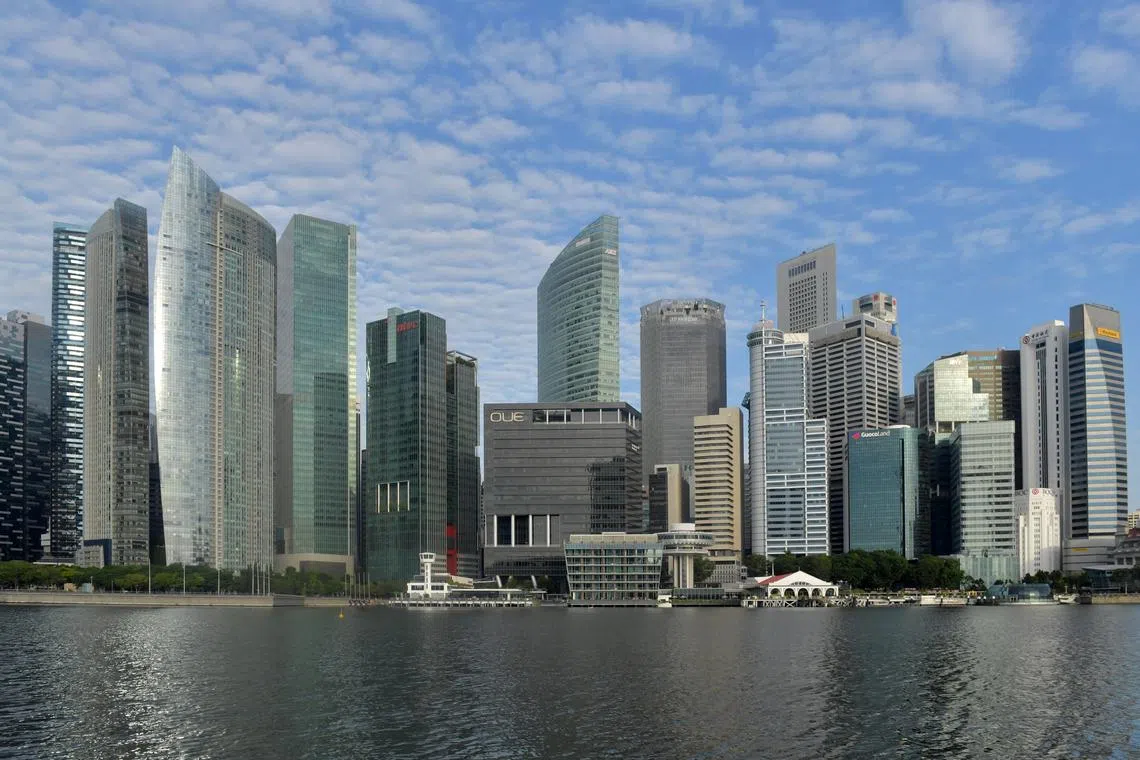Singapore wants businesses to share solutions, best practices on world stage: Grace Fu
Sign up now: Get ST's newsletters delivered to your inbox

Global carbon emissions are forecast to edge higher in 2022.
PHOTO: ST FILE
SHARM EL-SHEIKH, Egypt – Singapore hopes businesses will share technological solutions on the global stage on how to rapidly cut greenhouse emissions, and exchange best practices with one another to help countries set more ambitious climate targets, said Minister for Sustainability and the Environment Grace Fu on Wednesday.
They can do this through the Mitigation Work Programme (MWP),
The programme will help keep in sight the goal of limiting warming to 1.5 deg C.
Details of the mitigation programme are expected to be worked out at COP27.
In an update on Tuesday on the progress of negotiations at COP27, Ms Fu told reporters that discussions about the MWP have been on whether it can help countries turn pledges into real action and whether cost-effective, pragmatic projects can be implemented.
In the lead-up to COP27, developing countries had raised concerns that the programme might force them to come up with more ambitious climate targets, without the support of increased financing and technology transfers from richer countries.
“We hope that countries will look at improving or increasing their (climate) commitments, and be more assured that there will be support along the way,” she said.
Drawing examples from Singapore, Ms Fu said that mitigating carbon emissions goes beyond just the scope of the Ministry for Sustainability and the Environment, and also involves sectors such as energy, transport and the built environment.
Likewise, she sees the potential for non-governmental players to be involved in the MWP by bringing technology and solutions to the table.
In the area of renewable energy policies, for instance, companies can advise on how electric-vehicle charging can be implemented, among other things.
“So if I were to move from just target setting to actual implementation, allowing countries to learn from another, then we can accelerate the (clean energy) transition,” she added.
She noted, however, that high-level negotiations have yet to take place and the final details of the MWP may pan out differently.
According to draft documents of the MWP seen by The Straits Times, most of the issues relating to the programme have been resolved, but a few key sticking points remain.
For example, negotiators have not been able to agree on whether sectoral targets, standards and benchmarks should be set under the programme.
They have also not been able to decide how long the MWP would last – whether just one or two years; up till 2030; or until global emission trajectories have been reached such that countries would be able to limit warming to 1.5 deg C.
Fears that countries may backtrack on the agreement to limit temperature rise to 1.5 deg C have been unfounded, even though some have wavered on the inclusion of this target in the conference’s final agreement, said Ms Fu.
She said the European Union and several European countries have given the assurance they will not be rolling back on this target and are, in fact, accelerating their investments in renewable energy to address energy security concerns.
The Group of 20 – including the United States, China, Saudi Arabia and Britain – which collectively produces about 75 per cent of global annual emissions, has also agreed to keep the 1.5 deg C warming target within reach.



